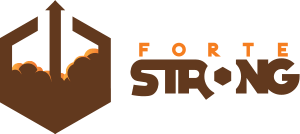Below is an excerpt from Allison Bottke, author of the much talked-about book Setting Boundaries with Your Adult Children. The following example depicts somewhat of a “fire” scenario where a struggling young adult is stuck in a rebellious and rescuing mode. Although this scenario might not apply to your unique situation, useful information can still be extrapolated from its concept. Whether your struggling young adult is in this mindset or not, take what you find helpful and apply it.
“Enabling parents know that we live either smack dab in the middle of crisis or we’re simply in between crises, waiting for the other shoe to drop. Every time the phone rings at night, we are catapulted to a place of despair. Will it be our adult child in a drunken stupor, will it be the police, or will it be the morgue?
Let’s look at these two ways we live and what we need to do to implement the decision we’ve made to stop enabling and set boundaries for our adult children.
- In between crises. Without a doubt, this is the best time to put our decision into motion. We would be wise to develop our action plan during this time, then present it to our adult children and get out of the way.
- In crisis mode. This is a harder time to implement your decision, but it can also show an immediate effect. If, for instance, your adult child has been arrested, do not intervene this time. If your adult child lives at home and is involved in anything related to drugs, alcohol, crime, violence, unacceptable behavior, or any type of illegal activity whatsoever, insist on his immediate departure from your home. Call the authorities if necessary. He can choose to go to rehab or to a friend’s home, or anywhere he’d like, including living on the street — whatever he decides — but it is not your responsibility to find somewhere for him to go.Remember, if he has broken the law, you may be considered an accessory to his crime. Calling the police will be one of the hardest things you’ll ever have to do, but it may be necessary.
If your adult child lives outside the home and is calling for money or a place to live, or is requesting (in many cases, begging) for your signature on a contract or rental agreement, do not give it to him.
There’s an old saying, “You can’t paddle another man’s canoe for him.” We’ve been paddling our adult children’s canoes for far too long. It’s time they learned how to paddle for themselves.
Knowing that we need to change and taking the steps necessary to make changes are, sadly, often two entirely different things.”
About The Author
Brook Price dedicated himself to helping others early in his life. He grew up in Sunny Orange County California, then joined the Marine Corps at the age of 21 serving five and half years as a helicopter crew chief and then as chief accountant. His journey with this type of work began when he volunteered as a Young Marines Instructor during his time in the Marines, helping kids get off the street, improve their lives and develop as a leader. After his tour Brook left the Marines to pursue a career in experiential therapy by attending Southern Utah University where he majored in outdoor recreation with a minor in psychology.
Brook has seventeen years experience working for a variety of different therapeutic and transitional programs across the nation. His thirst for knowledge drove him to learn and study successful therapeutic models and programs across the country, most notably Outward Bound. Brook has experience working with therapeutic, residential, military, wilderness and transitional programs for adults and adolescents.
